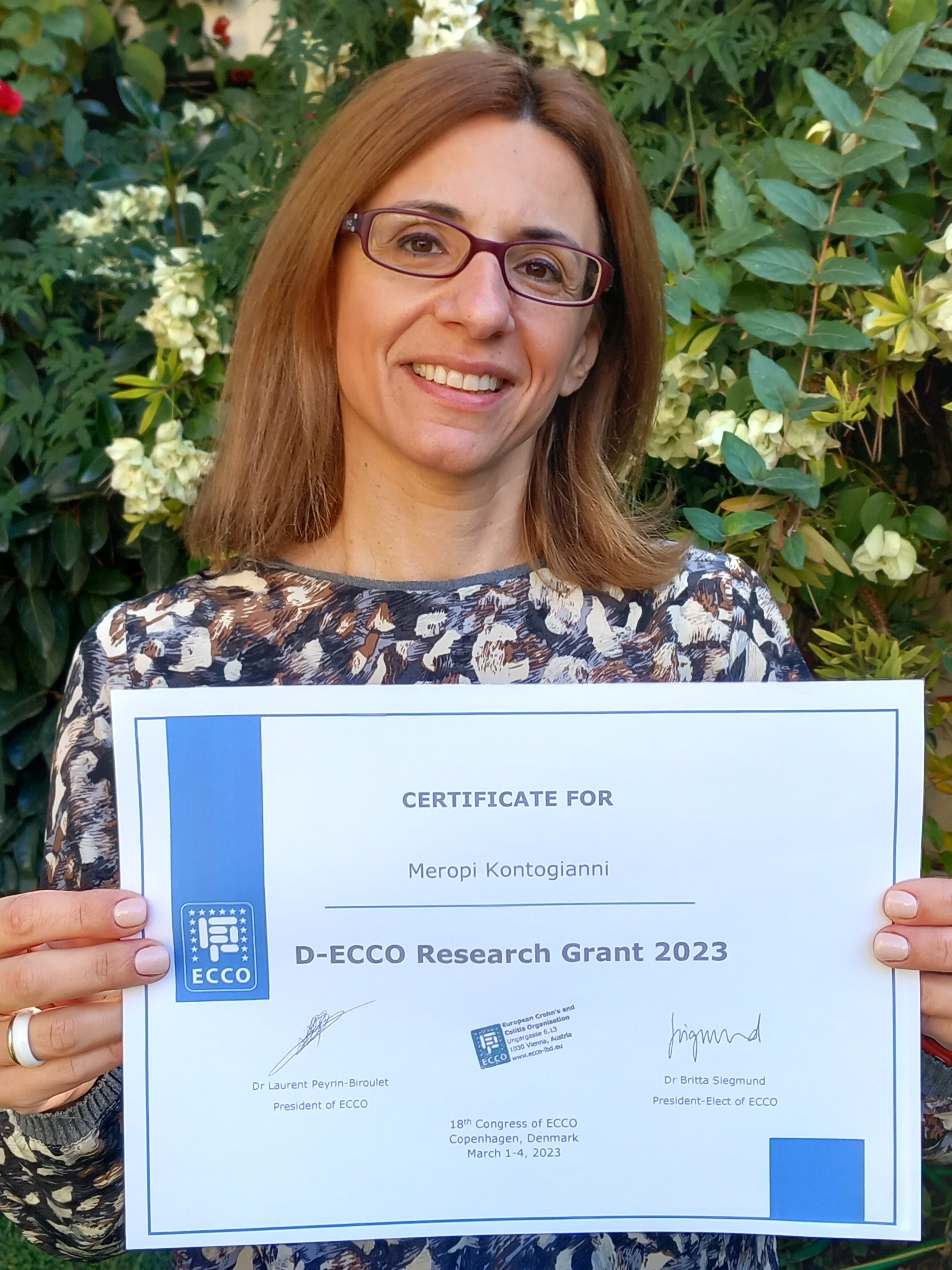D-ECCO Grant Study Synopsis: Meropi Kontogianni
Meropi Kontogianni, D-ECCO Grant Awardee
Combination treatment with partial enteral nutrition and biologics as induction therapy for adults with active ileocolonic Crohn’s Disease: a pilot study
 Meropi Kontogianni © Meropi Kontogianni |
Background & aim of research
There is strong interest in investigating combination therapies for active Crohn’s Disease (CD) to improve response to biologics and to mitigate secondary loss of response, without increasing the risk of drug-associated side effects. Exclusive enteral nutrition is an established treatment for active CD, but tolerance is poor. In partial enteral nutrition (PEN) only part of the habitual diet is replaced by the proprietary formula, allowing patients to eat some normal food. PEN at high volume (>50% energy requirements) can prolong remission compared to unrestricted diet. Therefore, the aim of the present study is to compare clinical remission/response rates to standard treatment with adalimumab (ADA) between a group of CD patients on unrestricted diet and another group on 50% PEN. Secondary aims are to explore how these two treatments change the gut microbiome composition and its diet-related function.
Methodology/experiments that will be used
Thirty patients with active CD from three referral hospitals in Athens, Greece will randomly receive 50% PEN or unrestricted diet in addition to standard care treatment with ADA, for 6 weeks. Blood and stool samples will be collected and disease activity will be measured at enrolment, during the intervention at 6 weeks and after 12 weeks. Primary outcome will be the proportion of patients who enter clinical remission by week 12. Secondary outcomes will be normalisation of faecal calprotectin and C-reactive protein at weeks 6 and 12. Faecal microbiome will be measured and related to disease markers to unveil underlying mechanisms of action. The impact of the two treatments on patients’ quality of life will be investigated, too.
Anticipated main impact
We anticipate that clinical, blood and faecal disease markers will improve in a higher proportion of patients on combination treatment with ADA and 50% PEN compared with those on ADA alone.
Proposed timeline
The study started at the beginning of January 2023 and will last 12 months.